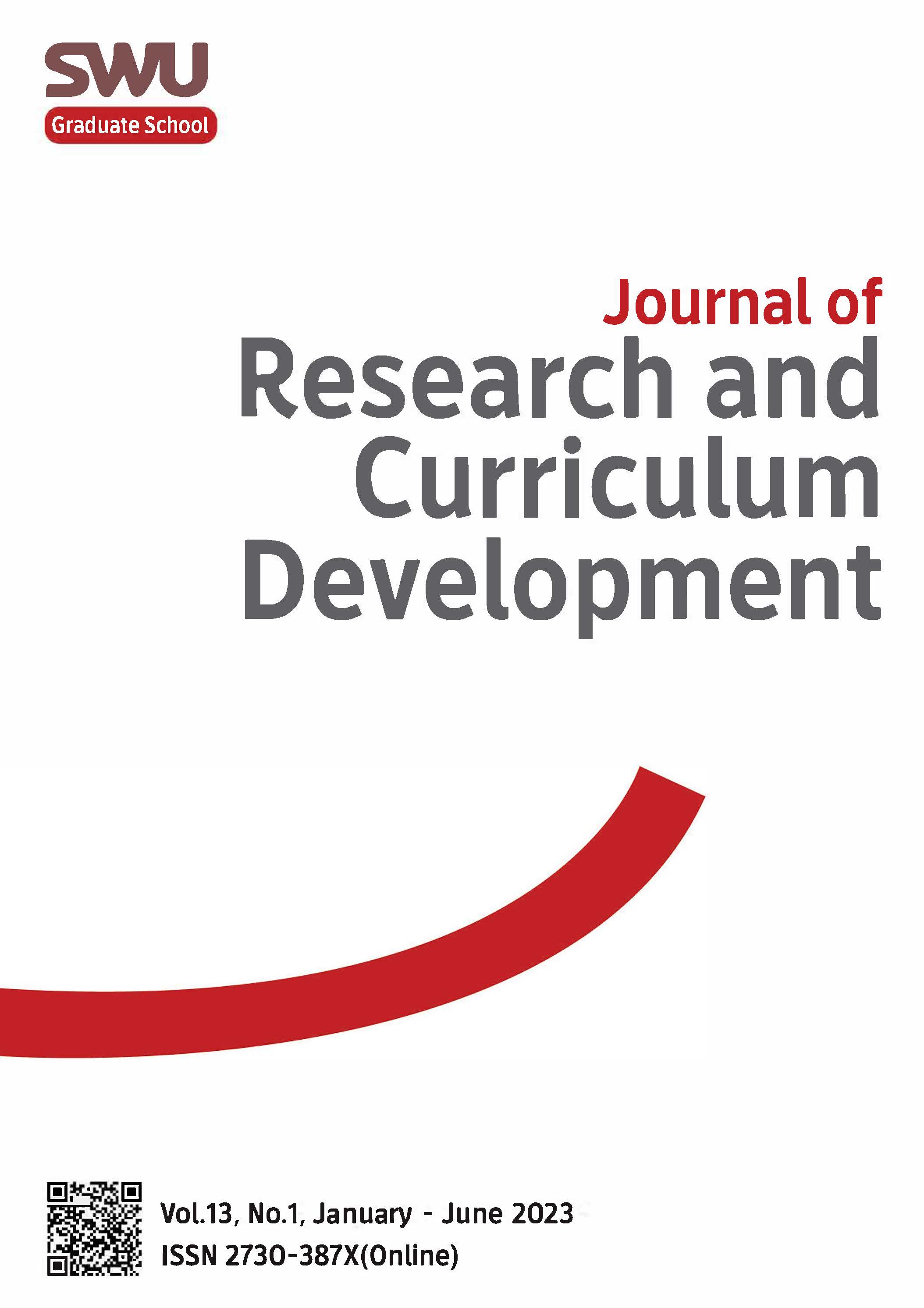Developing a System to Assess Teachers’ Performance via Information Technology According to the Joint Committee on Standards for Educational Evaluation: A Policy Proposal for Thailand
Keywords:
Thai Teacher Performance, Performance Assessment Process, Information Technology SystemsAbstract
Thailand has developed its teacher-assessment process to determine the skills of individual instructors for the purpose of improving during the semester, as regards rehiring or promotions. For the first time in this country, schools are using videos as a tool for performance assessment. This research focused on evaluating the professional skills of government teachers and other educational personnel. The primary areas of concern are as follows: (1) learning management and student attention; and (2) learning outcomes as a basis for creating and developing performance assessment by using online information technology systems. This is a pilot-based system for examining the feasibility of online teacher-performance assessment leading to the formulation of policy proposals for further development of the actual system from the policy proposal development phase of the assessment process. This research used a mixed method research methodology by adopting an exploratory design. The informants were 22 experts who assessed the videos obtained by purposive selection. The experts who confirmed the policy proposal summary were the same group responsible for assessing the videos by using the joint committee on the standards for educational evaluation. Not less than 80% of the 22 qualified people were selected on a voluntary basis. The information and communication technology system consisted of six steps: (1) recording basic information by requesting a username and password from the central system; (2) teachers applying for assessment submitted their learning-management plan and personal portfolio profile (PPP) to the system; (3) the system administrator received the files; (4) that administrators submitted the files to the qualified experts to assess teachers according to the criteria; (5) the expert assesses the forms recorded in the system according to the list and specified indicator; and (6) the assessment is processed. The assessors gave their opinions on the assessment system in terms of utility, feasibility, propriety, and accuracy so that these can be used to evaluate the performances of teachers.
References
Bone, A. A., Rachman, A., & Mashudi. I. (2021). The teacher performance appraisal system in improving teachers’ performance in Limboto district. Governance: Journal Ilmu Administrasi Publik, 4(1), 30-40.
Centers for Disease Control and Prevention. (1999). Framework for program evaluation in public health. Retrieved from https://stacks.cdc.gov/view/cdc/5204/cdc_5204_DS1.pdf.
Elliott, K. (2015). Teacher performance appraisal: more about performance or development? Australian Journal of Teacher Education, 40(9), 101-116.
Houston Independent School District. (2015-2016). Teacher appraisal and development system end of the year report, 2015-2016. Retrieved https://www.houstonisd.org/
Klinger, D.A., McDivitt, P.R., Howard, B.B., Munoz, M.A., Rogers, W.T., & Wylie, E.C. (2015). The Classroom Assessment Standards for PreK-12 Teachers. Kindle Direct Press.
Mandal, S., Sanjay, D. & Shrıvastava, R. (2010). Implementation of an online teacher assessment/appraisal in technical education institution: a case study. Turkish Online Journal of Distance Education, 11(4), 25-35.
Office of the Education Council. (2013). Development of Thai basic education curriculum. Retrieved from http://backoffice.onec.go.th/uploads/Book/1243-file.pdf
Office of the Teacher Civil Service and Educational Personnel Commission. (2020). Results of the meeting of the Government Teachers and Educational Personnel Committee (OTEPC) No. 9/2020. Retrieved from https://otepc.go.th/th/content_page/item/3234-9-2563-2.html
Office of the Teacher Civil Service and Educational Personnel Commission. (2021). Criteria and methods for assessing the position and academic standing of government teacher and educational personnel; teacher position. Retrieved from https://otepc.go.th
Patton, M. (1990). Qualitative evaluation and research methods. Beverly Hills, CA: Sage.
Rasheed, M. I., Aslam, H. D., Yousaf, S., & Noor, A. (2011). A critical analysis of performance appraisal system for teachers in public sector universities of Pakistan: A case study of the Islamia University of Bahawalpur (IUB). African Journal of Business Management, 5(9), 3735-3744.
Rattana, B. (2011). Mixed Methods in Educational Research. Silpakorn Educational Research Journal, 2(2), 7-20.
Sasiwuthiwat, S. (n.d.). Reforming the teacher compensation system to improve teacher quality. Retrieved from https://readgur.com/doc/2215139
Yamkasikorn, M., Rattanapinyowanich, T., Werathummo, A., Pitchayapirath, P., Tummaphan., P. & Phothong, W. (2021). The development of assessment of profession expertise procedure for government teachers and education personnel in teaching field. Bangkok: Office of the Teacher Civil Service and Educational Personnel Commission (OTEPC).
Downloads
Published
How to Cite
Issue
Section
License

This work is licensed under a Creative Commons Attribution-NonCommercial-NoDerivatives 4.0 International License.





